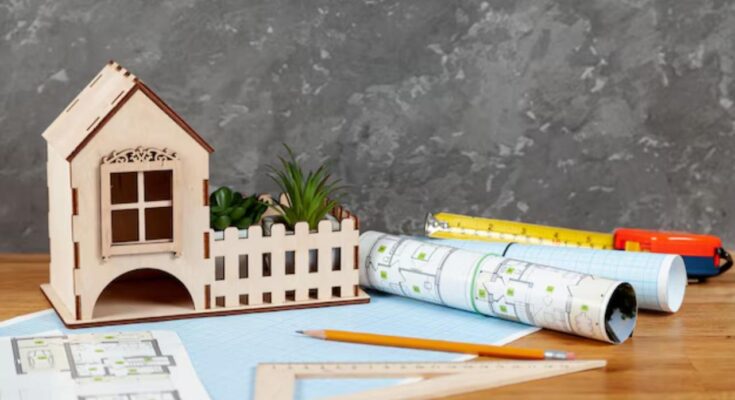Renovating your home is an exciting but often daunting process. Whether you’re revamping a single room or transforming your entire living space, home renovation projects require careful planning, budgeting, and decision-making. From choosing the right materials to managing unexpected challenges, it’s important to know how to tackle a renovation effectively to avoid costly mistakes and stress. With the right approach, your renovation can be a rewarding experience that adds significant value to your home and enhances your quality of life.
For more expert advice and tips on how to successfully navigate your next home renovation project, visit heavenhouzz.com. You’ll find practical insights and inspiration to help you turn your renovation vision into reality.
1. Start with a Clear Vision
Before diving into a renovation, it’s essential to have a clear vision of what you want to achieve. Take the time to research and gather inspiration from home design websites, magazines, or even social media platforms like Pinterest. Knowing your style preferences and what you want from the renovation will help guide your decisions throughout the project.
Create a vision board or list of must-haves, including any specific features or materials you want to incorporate. Defining the scope of your project early on will help you stay focused and prevent changes midway, which can lead to delays and increased costs.
2. Set a Realistic Budget
One of the most critical steps in any renovation is setting a realistic budget. Renovations can quickly become expensive, so it’s crucial to outline a clear financial plan from the start. Factor in not only the cost of materials and labor but also a contingency budget—around 10-20% of your total budget—for unexpected expenses. Hidden issues, such as plumbing or structural problems, often arise during renovations, and having a cushion in your budget can help you handle these surprises without derailing the entire project.
To ensure you stay within budget, get multiple quotes from contractors and suppliers, compare prices, and prioritize areas where you’re willing to splurge or save.
3. Hire the Right Professionals
While DIY renovations can save money, some projects require the expertise of professionals. For larger or more complex renovations, hiring a licensed contractor, architect, or designer can ensure the job is done correctly and safely. Professionals bring valuable experience and can help prevent costly mistakes.
When choosing a contractor, do thorough research—ask for referrals, read reviews, and check their credentials. Make sure to communicate your vision clearly and ask questions about timelines, materials, and any potential challenges they foresee. A good contractor should be able to provide a detailed quote and timeline, along with a clear plan for how the project will unfold.
4. Obtain Necessary Permits
Renovation projects often require permits, especially if you’re making structural changes, modifying plumbing or electrical systems, or expanding your home. Before you start tearing down walls or installing new fixtures, check with your local building authority to find out what permits are required.
Failing to obtain the necessary permits can lead to hefty fines, delays, and issues when selling your home in the future. Hiring a contractor who is familiar with local building codes and regulations can help streamline this process.
5. Create a Realistic Timeline
A successful renovation relies on having a well-thought-out timeline. Work with your contractor to establish a realistic schedule that factors in each phase of the project, from demolition to finishing touches. Keep in mind that delays are common, whether due to unforeseen issues, back-ordered materials, or weather conditions, so it’s important to build some flexibility into your timeline.
If you’re living in the home during the renovation, make sure you plan for any disruptions to your daily life, such as not having access to the kitchen or bathroom for extended periods. Proper planning will help minimize stress and keep the project on track.
6. Prioritize Functionality and Layout
When planning your renovation, don’t just focus on aesthetics—prioritize functionality and layout as well. A beautiful home is important, but it should also meet the practical needs of your household. Consider how you use each space and whether the changes will improve the flow, storage, and overall functionality of the room.
For example, when renovating a kitchen, think about how you cook, entertain, and move through the space. For a bathroom, consider storage solutions, ventilation, and lighting. Thoughtful design decisions will enhance your daily life and add long-term value to your home.
7. Choose Materials Wisely
Materials are one of the most significant expenses in any renovation, so it’s important to choose them wisely. Consider factors like durability, maintenance, and style when selecting materials for your home. While it’s tempting to go for the most affordable option, investing in high-quality materials can save you money in the long run by reducing the need for repairs or replacements.
For example, if you’re renovating a bathroom, opt for moisture-resistant materials like ceramic tiles or quartz countertops. In high-traffic areas like the kitchen or entryway, durable flooring like hardwood or luxury vinyl can withstand wear and tear better than cheaper alternatives.
8. Stay Involved and Communicate
Throughout the renovation process, it’s essential to stay involved and maintain open lines of communication with your contractor and team. Regular check-ins will help ensure the project is progressing as planned and give you the opportunity to address any issues or changes that arise. Don’t hesitate to ask questions or request updates—after all, it’s your home, and you deserve to know how things are going.
If something doesn’t look or feel right, speak up sooner rather than later. Fixing mistakes or making adjustments early on is far easier (and cheaper) than waiting until the project is nearing completion.
9. Plan for the Unexpected
No matter how carefully you plan, renovations rarely go exactly as expected. Unforeseen challenges, such as hidden water damage, electrical issues, or delayed shipments, can arise. Being prepared for these surprises will help you navigate them with less stress.
Keep your contingency budget in mind and stay flexible with your timeline. Remember that renovation is a process, and while bumps in the road are inevitable, they don’t have to derail your entire project.
10. Enjoy the Finished Result
Once the dust has settled and the renovation is complete, take the time to enjoy the results of your hard work and investment. Whether you’ve remodeled your kitchen, added a new bathroom, or transformed your backyard, the finished product should reflect your vision and improve the quality of your home life.
Renovations can be challenging, but with proper planning and the right team, they’re also incredibly rewarding. The changes you make today will not only enhance your home’s aesthetic and functionality but also increase its long-term value.
For more renovation tips, expert advice, and inspiration, check out heavenhouzz.com.




